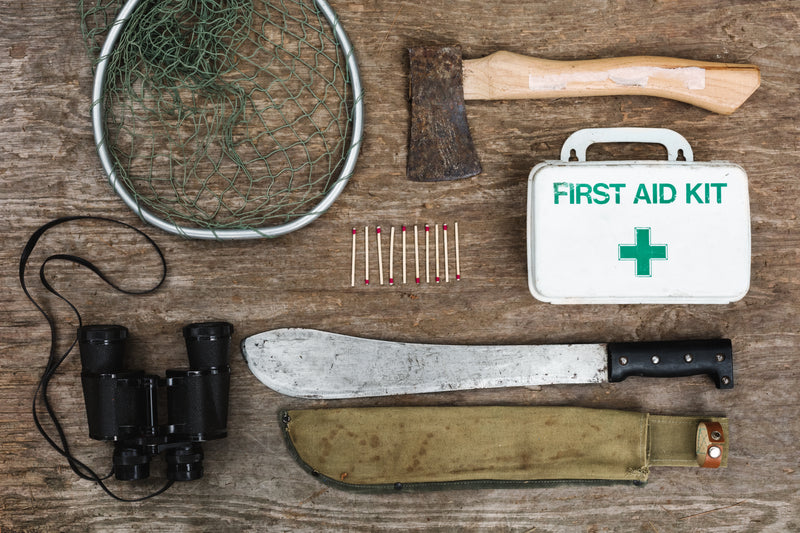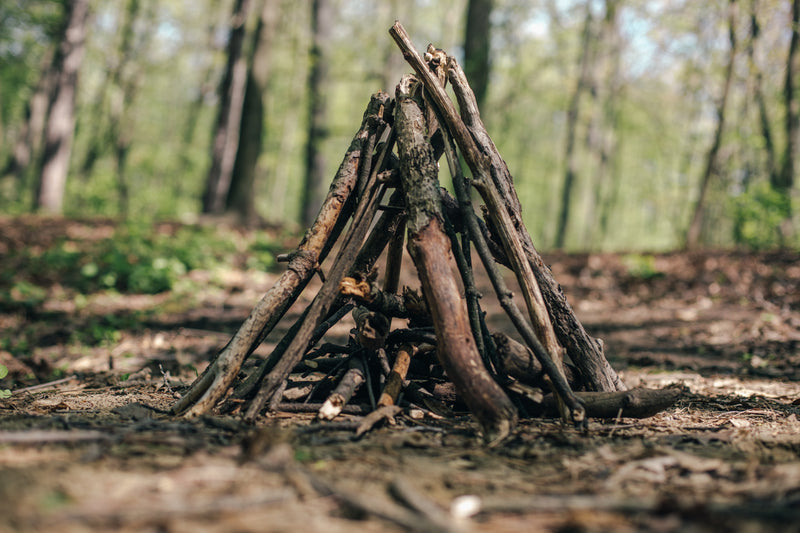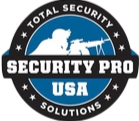
In a world that can be unpredictable and even dangerous, it's important to be prepared for anything. Whether it's a natural disaster, power outage, or other emergency situation, having the right skills and supplies can make all the difference. That's where prepping comes in. But if you're new to prepping, it can be overwhelming to know where to start. That's why we've put together a complete beginner guide to help you prepare to not just survive, but thrive in any situation. So buckle up and get ready to learn everything you need to know about prepping like a pro.

Understanding the Basics: Preppers Beginner Guide to Survival
Preppers beginner guide to survival should begin with understanding the basics. The first step is to identify potential threats, which can range from natural disasters such as hurricanes and earthquakes to human-made emergencies like power outages or civil unrest. Once you know what types of scenarios you need to prepare for, emergency preparedness becomes much easier.
Next, it's important to assess your current level of readiness by doing a self-audit of all your resources like water supplies, food stocks, medical supplies and so on. This will help determine what items are lacking in your emergency kit that needs immediate attention.
Be sure to stop by our Prepper's Corner for the perfect place to secure all of your prepper needs.
It is also crucial to have a clear understanding of the terrain where you live or plan to bug-out and how severe weather-related issues may impact it. Get familiarized with flood zones or other common hazards in those areas.
Finally, education plays an integral role in prepping - taking classes on basic survival skills such as first aid training can greatly increase chances of survival during an emergency situation. It's never too early (or late) to start preparing for any possible scenario which ultimately means prioritizing proactive safety over reactive ones!

Building Your Emergency Supply Kit: A Must for Every Prepper
Emergency supply kit is a crucial component of any preppers' survival plan. It should contain basic necessities that will enable you to survive during an emergency situation. Water and food are the most essential items in your kit, as they can sustain life for several days. You need at least one gallon of water per day per person and enough non-perishable food to last at least three days.
One of our best recommendations for water would be a life straw. This is because the life straw has the ability to filter out toxins in water and make any water source clean for drinking.
Other important components include a first aid kit, medications, hygiene items, blankets or sleeping bags, flashlights with extra batteries, a radio with extra batteries for updates on the current situation outside your area, whistle or other signaling devices if you are lost or trapped.
Make sure to store your supplies in a waterproof container and keep them in an easily accessible location within your home such as under the bed or inside a closet. Check expiration dates regularly and replace perishable items like medication before they expire.
Having an emergency supply kit ready can help give you peace of mind knowing that you are prepared for any crisis situation that comes your way.
Water and Food Storage: How Much Do You Need?
Water and food storage are critical aspects of prepping. The amount you need depends on the number of people in your group, how long you plan to survive, and the environment where you live. For water, it is recommended that each person have at least one gallon per day for drinking and sanitation purposes. Keep in mind that water sources may be contaminated during a crisis, so storing more than what is needed is wise.
For food storage, aim for a mix of non-perishable items such as canned goods, dried grains and legumes, freeze-dried meals, and energy bars. Rotate through your supplies regularly to ensure freshness. A good rule of thumb is to have enough food for at least 72 hours but ideally aim for two weeks or more.
Remember to also invest in proper containers that will keep your water safe from contamination and prevent pests from accessing your food supply.
The Importance of First Aid Skills in Survival Situations
Basic First Aid Skills Every Prepper Should Know
Knowing basic first aid skills is crucial for any prepper in a survival situation. Injuries and accidents are common during emergencies, and having the knowledge to properly address them can mean the difference between life and death. Some key first aid skills every prepper should know include performing CPR, treating wounds, splinting broken bones, controlling bleeding, and administering medications like painkillers or antihistamines. It's important to have a fully stocked first aid kit on hand at all times and to regularly refresh your knowledge through courses like CPR or Wilderness First Aid training. Remember that while you may not be able to prevent all injuries or illnesses, being prepared with these essential skills can give you a much higher chance of survival.
Essential First Aid Supplies for Your Prepper Kit
When it comes to survival situations, having the right first aid supplies can mean the difference between life and death. As a prepper, it's important to have a well-stocked first aid kit that includes emergency wound care items such as bandages, gauze, and antiseptic wipes. Other important supplies to include are medications such as pain relievers, antihistamines, and anti-diarrheal medication. It's also a good idea to have a first aid manual on hand to reference in case of an emergency. Remember to regularly check and update your first aid kit to ensure that all supplies are up-to-date and in good condition.

Communication During Emergencies: Essential Tips for Preppers
Communication During Emergencies can be a matter of life and death in survival situations. It's important for preppers to have a communication plan in place before any disaster strikes. Having multiple ways of communicating is crucial, such as cell phones, walkie-talkies, and even ham radios. Make sure to have backup batteries or solar chargers available.
It's also vital to know how to use emergency radio frequencies and channels that are designated for disaster response teams. Keep a list of emergency contact numbers handy on your phone or written down somewhere safe.
Remember that during emergencies, regular communication methods may not work, so it's important to establish meeting points beforehand with loved ones and friends in case you get separated.
Educating yourself on basic radio operations and protocols can go a long way in ensuring effective communication during high-stress scenarios. Don't wait until the last minute - start planning your communication strategy today!
Home Security Measures to Protect Yourself and Loved Ones
Home security measures are crucial for preppers to protect themselves and their loved ones during emergency situations. Start by securing all windows, doors, and entrances. Consider installing motion-sensor lights or cameras around your property. A fence can also be effective in keeping intruders out.
Have a plan in place for how you will defend your home if necessary. Keep firearms locked away safely but easily accessible if needed. It's important to regularly practice using them so that you're comfortable with them if an emergency arises.
Another important aspect of home security is building relationships with neighbors and forming a strong community network. They can help keep watch on your property when you're not there and offer support during difficult times.
Remember to stay alert for signs of potential danger, such as strangers loitering nearby or unusual behavior from someone in the neighborhood. Take steps to avoid being an easy target - keep a low profile, avoid flashing expensive items or equipment, and make sure no one knows about any stockpiled supplies you may have at home.

Evacuation Planning 101: What Every Prepper Should Know
Essential Evacuation Planning Tips for Preppers
Evacuation planning is an essential aspect of prepping for any emergency situation. Knowing your evacuation routes and having a plan in place can be the difference between life and death. Begin by assessing potential risks around your area, such as flood zones or areas prone to wildfires. Plan multiple evacuation routes, including alternative ones, in case some are blocked. Ensure that everyone in your household knows where to meet up if you become separated during the evacuation process. Finally, practice your plan until it becomes second nature and make adjustments as needed based on new information or changes in circumstances.
How to Create a Comprehensive Evacuation Plan
Creating a comprehensive evacuation plan is crucial for every prepper. Start by identifying potential evacuation routes and destinations. Consider multiple routes in case some are blocked or unsafe. Make sure to have a bug-out bag ready for each member of your family with essential items such as food, water, first aid kit, and important documents. Have a communication plan in place with designated meeting points and emergency contacts. Practice your evacuation plan regularly with your family to ensure everyone knows what to do in case of an emergency. Remember, being prepared can make all the difference in a crisis situation.
Top Mistakes to Avoid When Developing Your Evacuation Strategy
One of the top mistakes to avoid when developing your evacuation strategy is failing to prepare for different scenarios. While it's important to have a plan in place for natural disasters, like hurricanes or earthquakes, don't forget about other potential emergencies such as power outages or civil unrest.
Another key mistake is not having a clear communication plan with loved ones. Make sure everyone knows what the plan is and where they should meet if you get separated during an evacuation. Keep important documents like passports and insurance information in one place that's easily accessible so that you can grab them quickly on your way out.
Being prepared for any situation will help ensure that you're ready to react quickly and safely when disaster strikes.
The Importance of Regularly Updating Your Evacuation Plan
It's important to regularly update your evacuation plan as circumstances can change quickly during an emergency. Make sure you have a designated meeting place for your family and that everyone knows the plan. Keep important documents and supplies in a grab-and-go bag that is easily accessible. Consider different scenarios and plan for each one accordingly, such as a natural disaster or civil unrest. Practice your evacuation plan with your family so everyone knows what to do in case of an emergency. Remember, being prepared can make all the difference in a crisis situation.

Mental Preparedness for Surviving Any Crisis Situation
Mental preparedness is just as important as physical preparedness when it comes to surviving any crisis situation. It's essential to stay calm and level-headed in an emergency, as panic can lead to poor decision-making and potentially dangerous actions. One way to prepare mentally is to practice visualization exercises, imagining different scenarios and how you would react in each one. This can help you feel more confident and in control when faced with a real crisis. It's also important to stay informed and up-to-date on current events, so you can anticipate potential threats and be better prepared. Remember to take care of your mental health by practicing self-care techniques such as meditation or exercise, as stress can take a toll on both your physical and mental well-being. By prioritizing mental preparedness, you'll be better equipped to handle any emergency that comes your way.
In conclusion, being a prepper is not just about being paranoid or fearful of the future. It's about being proactive and responsible for your own safety and well-being. By following this complete preppers beginner guide, you'll have a better understanding of the basics of survival, how to build an emergency supply kit, how much water and food you need to store, the importance of first aid skills, communication during emergencies, home security measures, evacuation planning, and mental preparedness. Remember that preparation is key to thriving in any crisis situation. Start preparing today and be ready for whatever the future may bring.
Where Should a Prepper Start?
Right here at Security Pro USA, we host an entire section Prepper's Corner, specifically made by preppers, for preppers.


0 comments